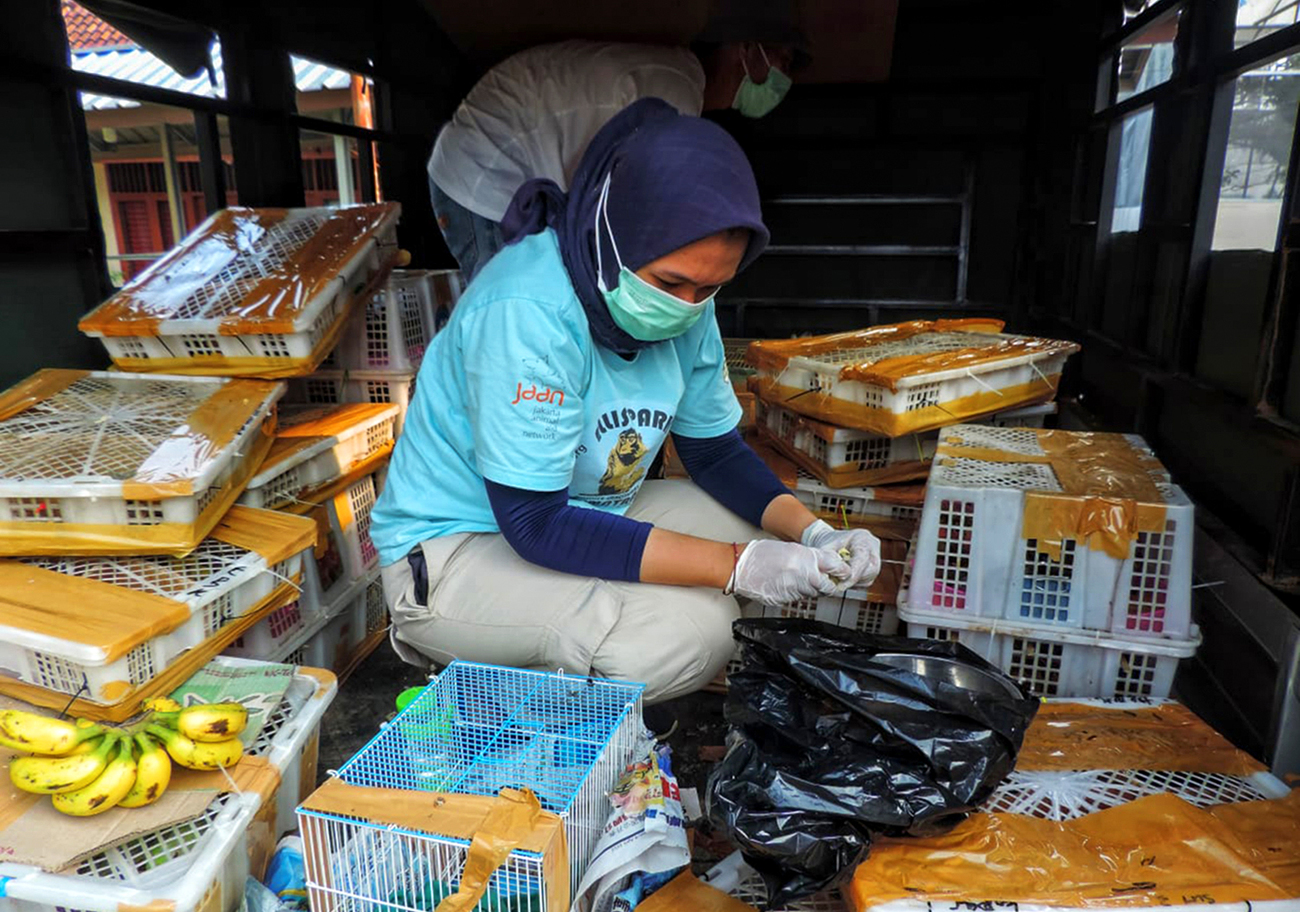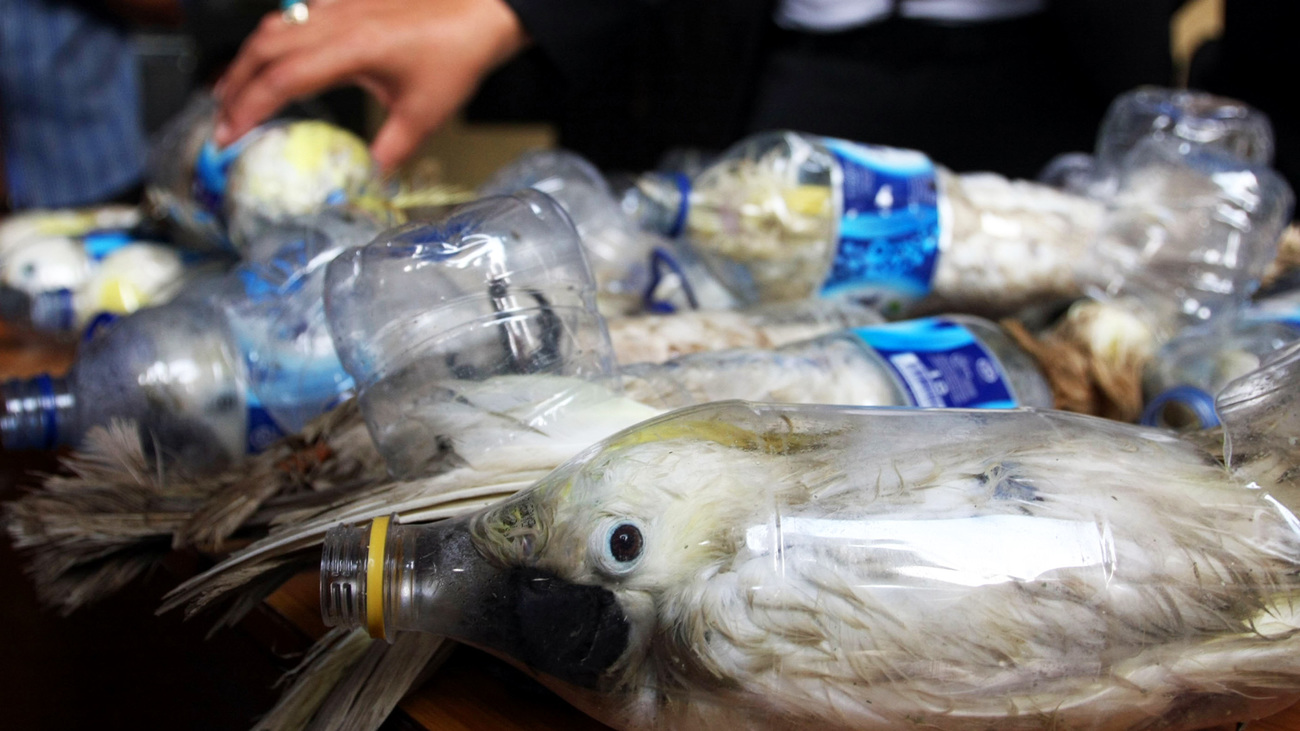Seizure by Dutch authorities underscores urgent need for stronger EU legislation and digital enforcement
Seizure by Dutch authorities underscores urgent need for stronger EU legislation and digital enforcement
The recent arrest by the Netherlands Food and Consumer Product Safety Authority (NVWA) of a suspect allegedly involved in large-scale illegal bird trafficking—with nearly 500 birds seized, many originating from Africa and Asia—highlights that wildlife crime poses a serious threat within Europe. This threat extends beyond the welfare of the animals involved; it also undermines biodiversity, public health, the integrity of ecosystems, and the rule of law. This case underscores how traffickers continue to exploit the European market as a destination for wild-caught animals.

Legal loopholes and enforcement gaps enable wildlife crime
As an organisation committed to animal welfare, conservation, and the effective enforcement of wildlife laws and regulations, IFAW identifies several structural gaps in this case that require urgent attention.
EU legislation bans the import of wild-caught birds to prevent health risks, and this seizure demonstrates the importance of such protective measures. However, most of the non‑CITES-listed species—those not listed under the Convention on International Trade in Endangered Species of Wild Fauna and Flora (CITES) and therefore lack specific protection in international trade—fall outside the EU regulatory framework.
These gaps in oversight and enforcement allow trade in illegally sourced wildlife to go undetected. As a result, wild animals whose origin cannot be verified may still enter the legal European market.
Online marketplaces: the front line in wildlife crime
In a recent IFAW report on illegal wildlife trade from Latin America to Europe, we identified 34 seizures, involving a total of 2,495 wild animals from 69 different species. Notably, most of the birds were intercepted in the Netherlands. These animals are often smuggled in horrific conditions and sold in the European market, frequently via online channels. European demand for rare birds and other exotic species continues to drive this illegal trade.
The role of online marketplaces in facilitating illegal trade cannot be overstated. Criminals increasingly use digital platforms to sell wild animals under the radar of enforcement agencies. IFAW plays an active role here as a Trusted Flagger under the EU Digital Services Act—a status that enables us to report illegal content, such as advertisements for wildlife, directly to platforms with priority. This mechanism allows for faster action against wildlife cybercrime, but long-term progress will require continued commitment from both platforms and authorities.
This case also highlights the need for a broader legal basis within the EU. IFAW calls for the criminalisation of trade in illegally sourced wildlife—regardless of whether the species are protected under CITES. As long as the legal system does not take the origin of animals into account, loopholes will remain. It is time to close those loopholes together.

Transparency and registration are key to effective enforcement
The lack of transparent, comprehensive, and centralised recordkeeping on wildlife trade is another structural issue. Only a quarter of the animals documented in IFAW’s report fell under CITES protection and are monitored at the species level when entering the EU. Without uniform, species-specific records on quantities and origin of traded wildlife across the EU, effective enforcement remains out of reach. An EU-wide obligation for detailed registration of all species is essential to improve monitoring and control.
This case demonstrates that enforcement is possible and that important progress is being made. But as long as gaps in legislation, transparency, and digital enforcement persist, the illegal wildlife trade will remain a low-risk, high-profit criminal activity. IFAW therefore urges decisive action: close the legal loopholes, equip enforcement agencies with the tools they need, and ensure that the digital marketplace is held to the same standards as the physical one.
Related content
Every problem has a solution, every solution needs support.
The problems we face are urgent, complicated, and resistant to change. Real solutions demand creativity, hard work, and involvement from people like you.